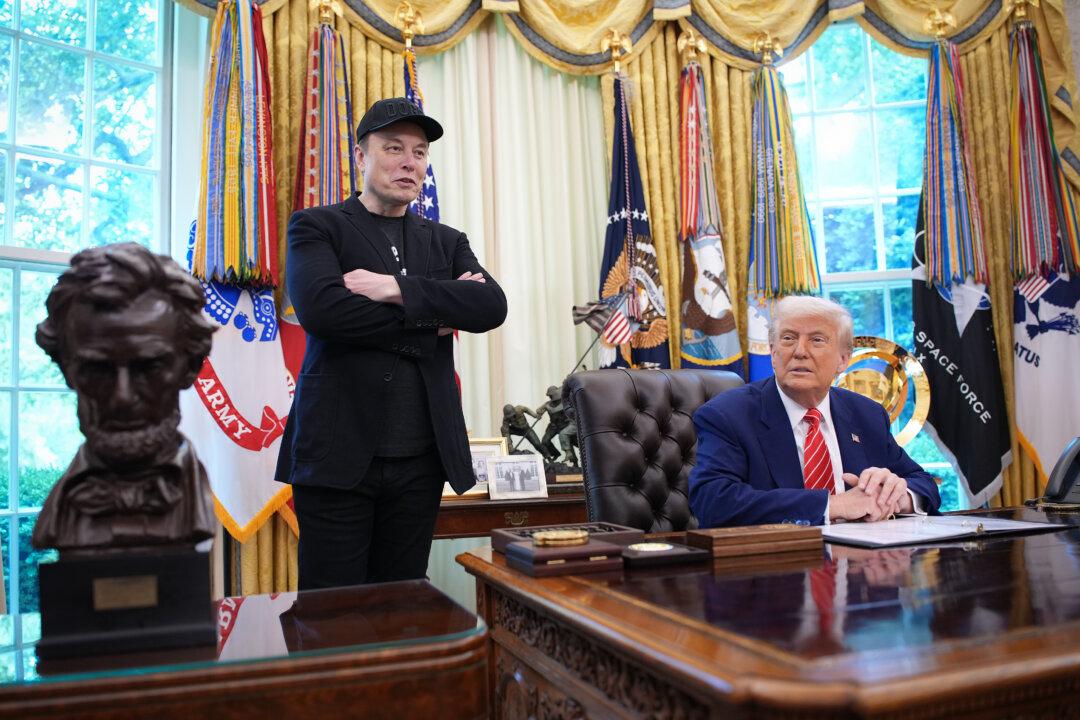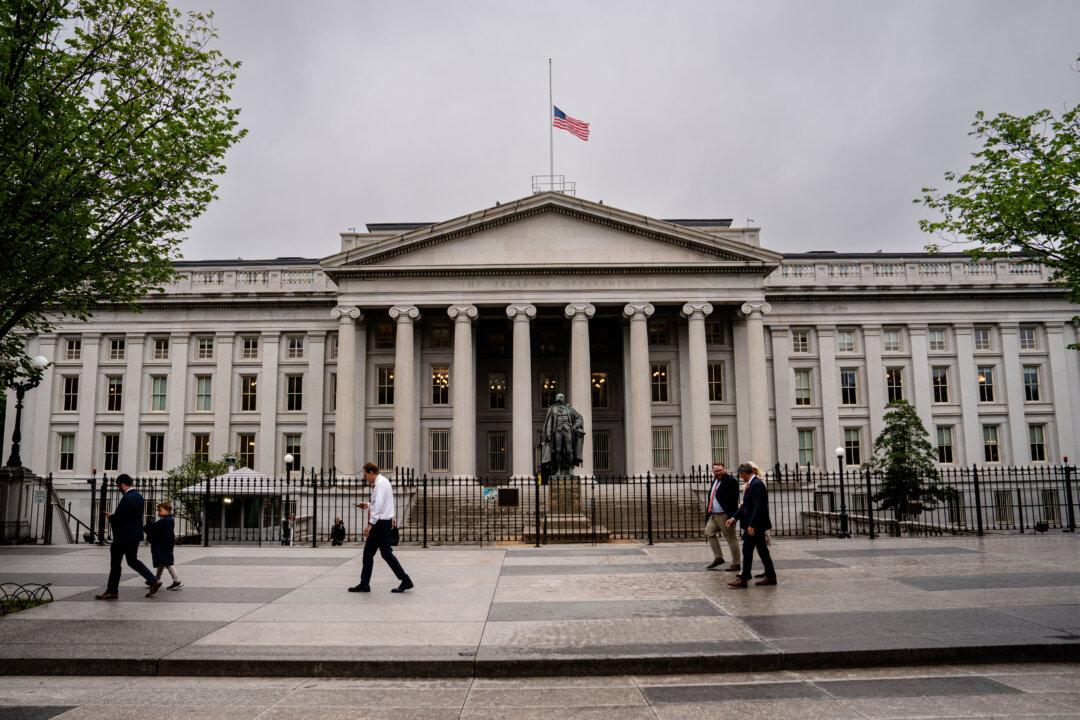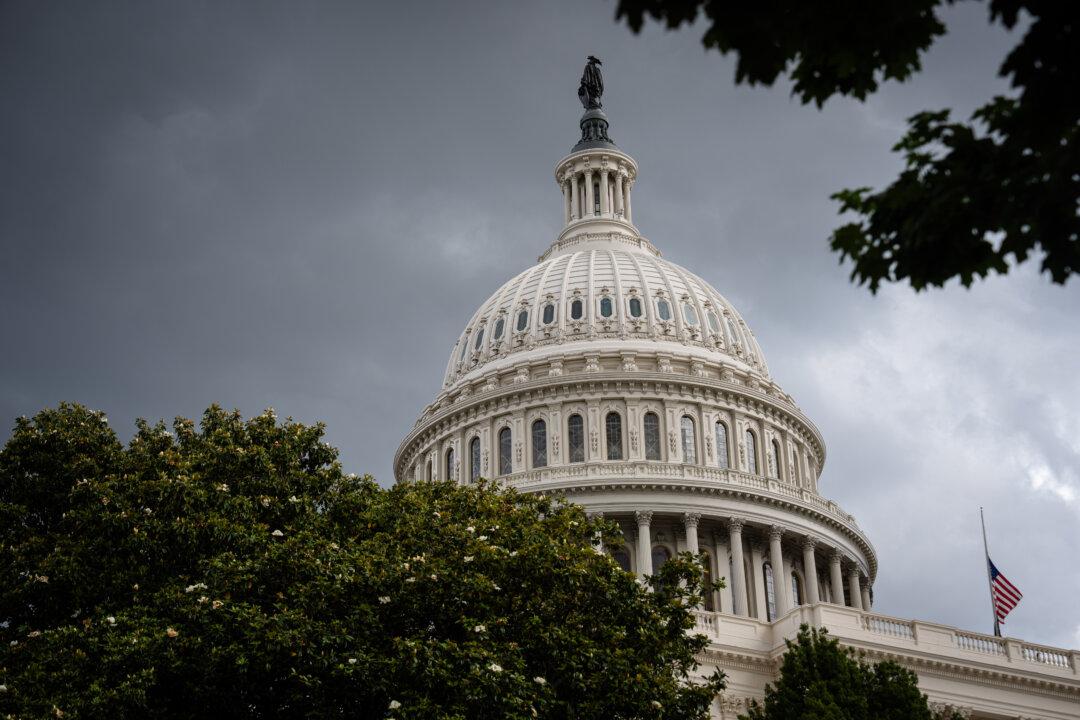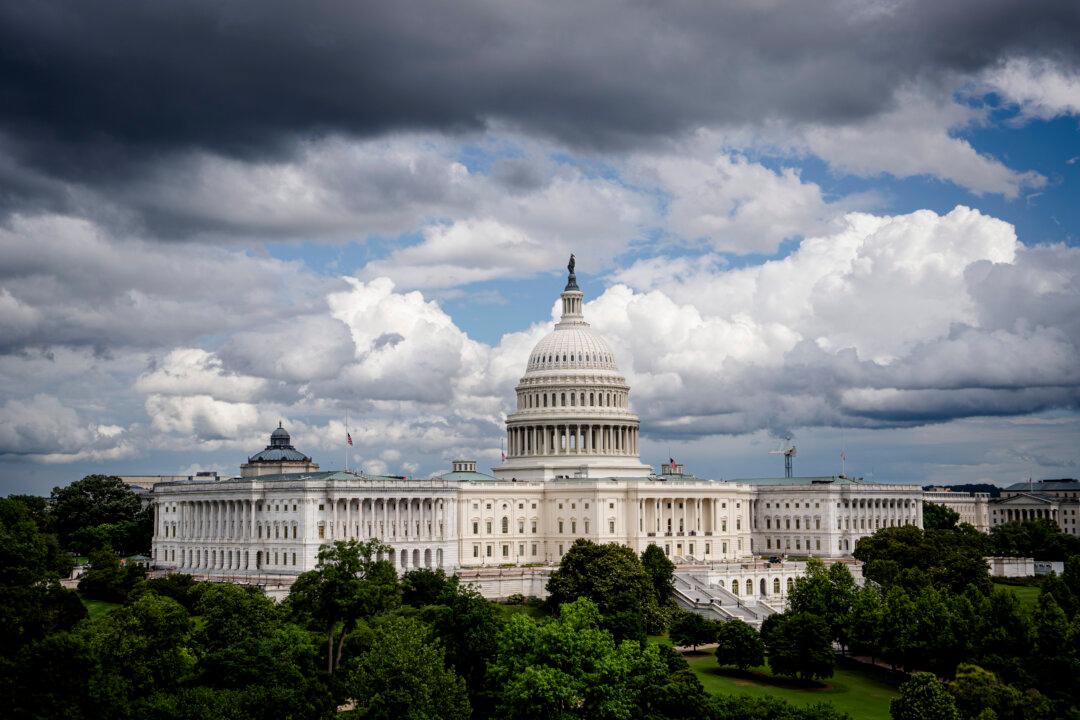Simmering policy disagreements between President Donald Trump and Tesla CEO Elon Musk on June 5 devolved into open conflict after Trump criticized his former ally from the Oval Office.
Musk quickly shot back on his social media platform X, posting a flurry of responses and raising the prospect of abandoning the GOP entirely in favor of a new third party. Trump responded on his Truth Social platform, threatening to cancel government contracts with Musk’s companies.
The conflict escalated rapidly online, with both leveling harsh criticism at the other.
The once-close relationship between the two, which began in 2024 after Trump narrowly survived an assassination attempt in Butler, Pennsylvania, appeared to have been strained in recent weeks by disagreements over the House-passed budget bill, called the One Big Beautiful Bill Act.
A Public Breakup
After days of attempting to present a unified front despite their disagreements on the budget bill, Trump indicated growing frustrations with Musk during comments to reporters from the Oval Office.The president expressed disappointment in Musk’s criticisms of his key legislation.
“Elon and I had a great relationship. I don’t know if we will anymore,” he said.
Musk immediately responded with a post on X, claiming that his campaigning for Trump turned the tide in the crucial swing state of Pennsylvania.
“Without me, Trump would have lost the election, Dems would control the House and the Republicans would be 51–49 in the Senate,” Musk said. “Such ingratitude.”
Trump said he had been blindsided by Musk’s opposition to the GOP bill, telling reporters that Musk “knew the inner workings of the bill better than anybody sitting here.”
Trump suggested that Musk’s opposition was driven, in part, by the bill’s provisions to repeal credits for electric vehicles that were included in the 2022 Inflation Reduction Act.
“He only developed the problem when he found out we’re going to cut the EV mandate,” Trump said, referring to electric vehicles.
Musk denied that his opposition was because of the changes to EV policy.
“Whatever,” he said in a post. “Keep the EV/solar incentive cuts in the bill, even though no oil & gas subsidies are touched (very unfair!!), but ditch the MOUNTAIN of DISGUSTING PORK in the bill.”
Trump Threatens Musk’s Contracts
Trump also warned that he could cancel the SpaceX CEO’s government contracts, saying that cutting these would be a quick way to save the government money.“The easiest way to save money in our Budget, Billions and Billions of Dollars, is to terminate Elon’s Governmental Subsidies and Contracts,” Trump wrote in a post on Truth Social.
In response, Musk said in a post that SpaceX “will begin decommissioning its Dragon spacecraft immediately.”
The spacecraft referenced by Musk, the Dragon 2, is currently one of the most commonly used spacecraft to ferry U.S. crew and cargo to the International Space Station, for which the government pays SpaceX.
Debate Over Bill’s Deficit Impact
The conflict stems from differing positions on the Trump agenda bill’s impact on the federal deficit.Trump and Republican leaders argue that the bill would unleash economic growth, leading to net reductions in the deficit over 10 years.
During a call with reporters on June 4, Russ Vought, director of the Office of Management and Budget, said that the CBO’s baseline for calculating the budget impact is “fundamentally skewed.” House Speaker Mike Johnson (R-La.), who shepherded the bill through the lower chamber, has similarly accused the CBO of assuming a “historically low growth rate” in reaching that conclusion.
“When you combine the two—the deficit will be cut by $500 billion over 10 years,” White House principal deputy communications director Alex Pfeiffer said on X on June 4, referring to the CBO projections on the budget bill and Trump’s tariffs.
The president defended the bill in a June 5 post on Truth Social, calling it “one of the Greatest Bills ever presented to Congress.”
“It’s a Record Cut in Expenses, $1.6 Trillion Dollars, and the Biggest Tax Cut ever given,” Trump wrote.
Musk has decried the bill as a “disgusting abomination,” expressing skepticism that a bill can be both “big” and “beautiful.” He called on supporters to urge their lawmakers to “KILL the BILL.”
It’s unclear what impact the growing feud will have as the legislation works through the Senate. The president hopes that the legislation can be passed by early July.
Several Republicans—including Sens. Rand Paul (R-Ky.), Ron Johnson (R-Wis.), and Mike Lee (R-Utah)—have expressed similar concerns regarding the bill’s impact on the federal budget.
Substantial modifications to the House-passed bill are expected in the upper chamber, where Trump can spare no more than three defections to pass the legislation.








